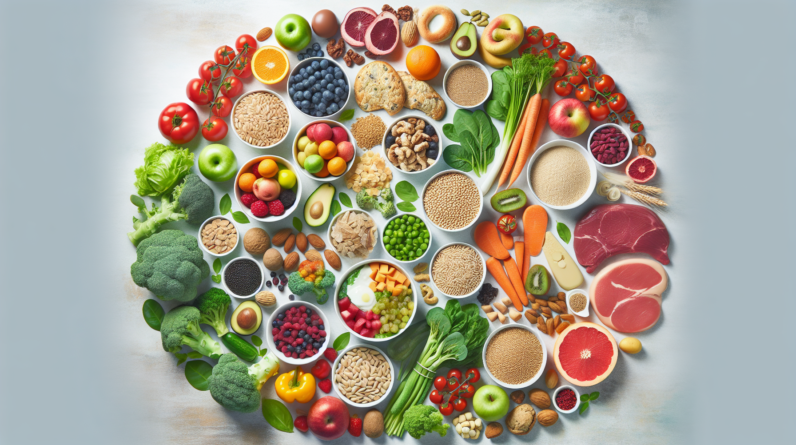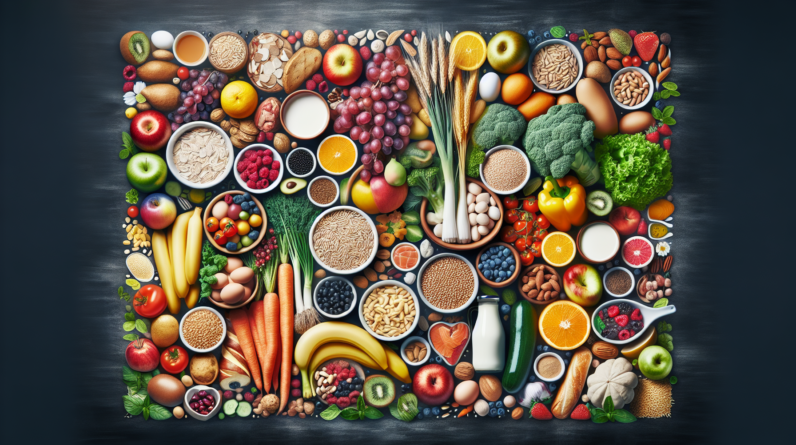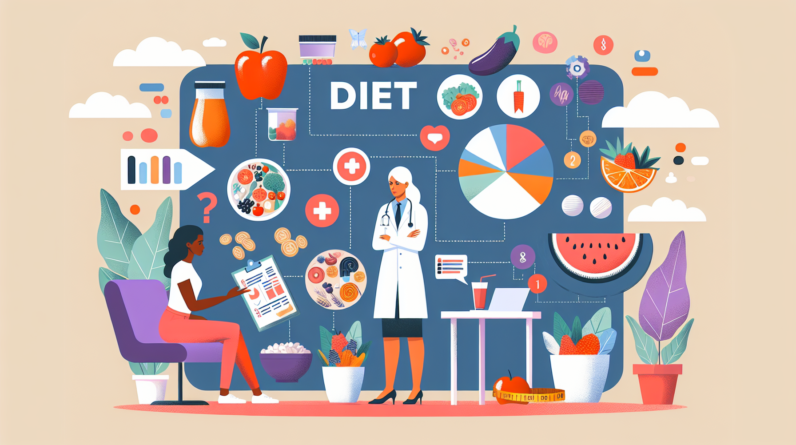
In today’s fast-paced world, maintaining a balanced and nutritious diet can often feel like a daunting task. With an overwhelming amount of information available, it can be hard to decipher what is truly beneficial for our bodies. However, on this website dedicated to health and fitness, we aim to provide you with valuable nutrition tips that will help you achieve a well-rounded and nourishing diet. Through expert advice and evidence-based research, we strive to empower you to make informed decisions about your nutritional choices, making your path to wellness a little smoother.
Nutrition Tips for a Balanced and Nutritious Diet
Importance of a Balanced and Nutritious Diet
Maintaining a balanced and nutritious diet is of utmost importance for our overall health and wellbeing. A well-balanced diet provides essential nutrients that our bodies need to function optimally, ensuring that we have enough energy for daily activities and supporting various bodily functions. It also helps in maintaining a healthy weight, reducing the risk of chronic diseases, and promoting a strong immune system.
Understanding Macronutrients
Macronutrients, which include carbohydrates, proteins, and fats, are the major nutrients that our bodies require in large quantities. Each of these macronutrients plays a vital role in proper functioning and should be consumed in the right proportions.

Choosing the Right Carbohydrates
Carbohydrates are our primary source of energy and should be an integral part of our diet. However, it is essential to choose the right types of carbohydrates. Complex carbohydrates found in whole grains, fruits, vegetables, and legumes are rich in fiber and nutrients, providing sustained energy and promoting digestive health. On the other hand, simple carbohydrates like refined sugars and processed foods should be limited as they can lead to weight gain and contribute to chronic diseases.
Optimizing Protein Intake
Proteins are the building blocks of our bodies, necessary for growth, repair, and maintenance of tissues. Including a variety of lean protein sources such as poultry, fish, eggs, beans, and nuts in our diet can provide us with essential amino acids. These are necessary for the proper functioning of our muscles, immune system, and various other bodily processes.

Including Healthy Fats
Contrary to popular belief, not all fats are bad for us. Healthy fats, such as those found in avocados, nuts, seeds, and olive oil, are essential for heart health, brain function, and vitamin absorption. It is crucial to include these healthy fats in moderation while avoiding trans fats and saturated fats found in fried and processed foods, as they can increase the risk of cardiovascular diseases.
Importance of Vitamins and Minerals
Vitamins and minerals are vital for our overall health and play a variety of roles in maintaining proper bodily functions. Including a wide range of fruits, vegetables, whole grains, and lean proteins in our diet can help us obtain a variety of vitamins and minerals. It is important to note that some vitamins and minerals, such as vitamin D and calcium, may require additional supplementation, especially for individuals with specific dietary restrictions or limited sun exposure.
Adding Fiber-rich Foods
Fiber is a type of carbohydrate that is not digested by our bodies but is crucial for digestive health. Including fiber-rich foods such as whole grains, fruits, vegetables, and legumes helps prevent constipation, lowers cholesterol levels, maintains blood sugar levels, and promotes satiety. It is recommended to consume at least 25-30 grams of fiber daily to maintain a healthy digestive system.
Hydrating Properly
Hydration is often overlooked but is essential for our overall health and wellbeing. Water is involved in almost every bodily function and plays a crucial role in regulating body temperature, aiding digestion, and transporting nutrients. It is important to drink an adequate amount of water throughout the day and especially during physical activity to stay properly hydrated. The general guideline is to drink at least 8 cups (64 ounces) of water daily, but individual requirements may vary based on factors such as age, activity level, and climate.
Limiting Added Sugars
Consuming high amounts of added sugars has been linked to various health issues, including obesity, type 2 diabetes, and heart disease. Added sugars, such as those found in sugary beverages, candies, and baked goods, provide empty calories and contribute to weight gain without providing any significant nutritional value. It is important to read labels carefully and limit our consumption of foods and beverages that contain high amounts of added sugars.
Controlling Sodium Intake
While sodium is an essential nutrient, consuming excessive amounts can lead to high blood pressure and other health problems. Processed and packaged foods are often high in sodium, so it is important to read labels and choose low-sodium options whenever possible. Cooking at home using fresh ingredients allows us to have better control over our sodium intake.
Meal Planning and Portion Control
Incorporating meal planning and portion control into our dietary habits can greatly contribute to maintaining a balanced and nutritious diet. Planning meals in advance helps ensure that we have a variety of nutrients in our diet and reduces the likelihood of relying on unhealthy, convenient foods. Additionally, practicing portion control helps prevent overeating and allows us to enjoy a wide range of foods without compromising our health goals.
In conclusion, maintaining a balanced and nutritious diet is crucial for optimal health and wellbeing. By understanding the importance of macronutrients, making mindful choices about carbohydrates, proteins, and fats, including a variety of fruits, vegetables, whole grains, and lean proteins, and being mindful of hydration, fiber intake, added sugars, sodium, and portion control, we can ensure that our bodies receive the necessary nutrients to thrive. With proper nutrition, we can enhance our overall health, reduce the risk of chronic diseases, and improve our quality of life.




